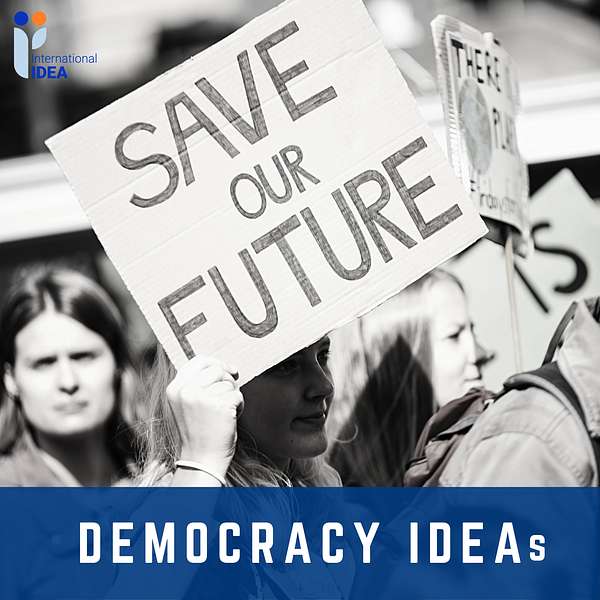
Democracy IDEAs
Democracy IDEAs is brought to you by the International Institute for Democracy and Electoral Assistance (International IDEA). Our podcasts share analyses, data, and insights from experts worldwide to help you understand the challenges of democracy in times of crisis. Find more information to empower you on decision-making processes at www.idea.int
Democracy IDEAs
Nigeria’s 2020 Gubernatorial Elections – Conducting electoral training during the Covid-19 pandemic
Against a background of deteriorating informational environments, falling trust in state institutions and growing electoral result disputation, electoral processes and those who administer them are increasingly being placed under the microscope. Ensuring that the integrity of elections withstand such scrutiny and that voters remain informed and engaged falls largely to election trainers and educators, and it is their vital work that is the focus of the first series of Peer-to-Peer, International IDEA’s new elections podcast.
Through interviews with electoral trainers and educators from around the world, the first series explores how different election commissions tackle the thorny issues affecting their field. How can thousands of temporary poll workers be prepared for election day operations in a short space of time? How can election training be delivered during a pandemic? How can voters be motivated to cast their ballot?
In episode #4 of Peer-to-Peer we take a deep dive into electoral training in Nigeria during the Covid-19 pandemic. With Ibrahim Sani, Director of Research at the Independent National Election Commission of Nigeria (INEC), David Towriss discusses the issues INEC had to address when early in the pandemic it prepared for gubernatorial elections in two of its states.
What new responsibilities would poll workers have to assume? What changes would have to be made to the training curricula? How would the delivery of training have to change?
Ibrahim explains how INEC answered these questions and shares its experience of implementing those solutions.
- Nigerian State Elections during the Covid-19 Pandemic: https://www.idea.int/sites/default/files/nigerian-state-elections-during-the-covid-19-pandemic-en.pdf
- Electoral Training and Education: The Case of the Electoral Institute in Nigeria: https://www.idea.int/sites/default/files/multimedia_reports/electoral-training-and-education-the-case-of-the-electoral-institute-in-nigeria-case-en.pdf